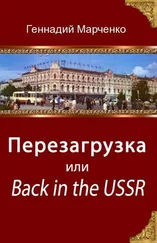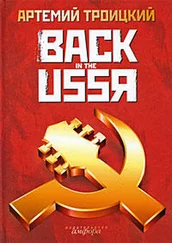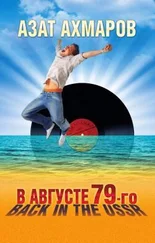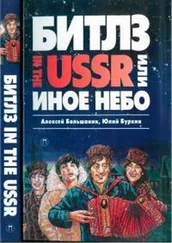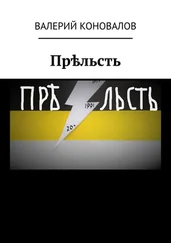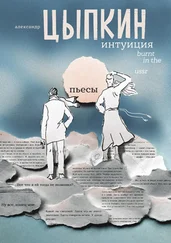When the government passes a decree against drinking in factory canteens we produce our own spirit on the shop-floor. This ‘syntec,’ as we call it, is made by pumping air through buckets of triethylphosphate. The acidity of carbon dioxide in the air separates ethyl alcohol from the phosphoric acid. Holding our noses and closing our eyes against the fumes we knock back our syntec in the showers and then leave the plant before the full effect hits us.
In December a law is passed against public drunkenness. A boss, neighbour or relative can ring the police to report you. No further proof is needed. A whiff of alcohol on your breath is enough to get you locked up for 15 days. Alcoholics have become the new Enemies of the People. The thinking follows along these lines: a drunk ‘damages his human worth,’ so he should be locked up for the night in a special holding station, without medical help. After this he will take heart and emerge in the morning sober and ready to build our shining future. The cost of this service is knocked off his wages. That is the theory. In reality the police have to meet their targets of catching a certain number of drunks. They pick up anyone who has the slightest sniff of booze about them. They don’t bother the hardened drunks in town; there’s no point. They don’t work, so there’s nowhere to send the bill.
I am sentenced as a Decembrist [14] Decembrists were revolutionaries sentenced in 1825 for plotting against Tsar Nicholas the First. In this context they were drunks sentenced according to the December laws.
when a neighbour reports me for banging on my door. I’ve lost my key and forgotten that Olga is at work. My trial lasts no more than a minute and the verdict is not subject to appeal. I do my time in a filthy police cell, deprived of tobacco and sleeping on the bare floor.

On my release I’m summoned to a workplace meeting and branded as a stain on the honour of the collective. Party demagogues and careerists have free rein. My mates sit solemnly through my denunciation, knowing that any one of them could be standing in my shoes. Afterwards they take me out for a consolation drink.
In an attempt to humiliate us Decembrists the plant erects a bottle-shaped booth and a metal cup by its gates. We are paid our wages through a little window in the side of the bottle. We have to stand in the cup while the entire workforce of the plant files past to the bus stop. Soon the bottle becomes a place where troikas assemble before running to the nearest vodka shop.
‘To hell with them all,’ I think as I sink even lower. I see no reason to stop drinking. Life will be no better without the bottle. Shops won’t suddenly fill with goods and the people around me won’t blossom into interesting companions. I find a thousand convincing reasons to get drunk. If the house is clean and tidy, that has to be toasted; if Olga nags me, I have to register my protest. If someone makes a rude or untrue remark about me, I drink to console my hurt feelings. Most often it’s my wife who is guilty of wounding my soul.
Each time I overstep the mark I renounce the bottle for two or three months until my resolve crumbles. My periods of abstention convince me that I can leave the drink alone. Yet whether I am drinking or not I always have alcohol on my mind; I believe everyone has.
I miss so much work that my plant threatens the sack. Olga wants me to have treatment.
“I drink no more than anyone else,” I protest
“Then why don’t you spend less time with your drinking-partners and take a correspondence course? With a few qualifications you might get a more interesting position where you wouldn’t want to waste all your time drinking.”
“You must be mad if you think I’m going to spend my free time studying dialectical materialism. Just so I can swap my hammer and screwdriver for a phone and pen — and for what? To win the right to bark at my friends? Anyway, you’re a ‘professional’ but you earn less than me no matter how many abortions you perform.”
“I sometimes wonder why I married you.”
“Because if you hadn’t, you would have had to repay your debt to the state by going to practise your medical skills on some godforsaken collective farm. Not even your Party Papa could have saved you from that fate.”
In the end I agree to seek treatment just to keep everyone quiet. Through her contacts Olga gets me into a psychiatric clinic. They give me three grams of a drug called Antabuse, followed by 30-40 grams of vodka. This cocktail takes my breath away. They revive me with oxygen and apomorphine, though not enough of the latter for my taste.
With Antabuse in my system I keep off the booze for eight months. Our daughter Natasha is born and I stay at home caring for her while my wife works night shifts.
* * *
In summer my family and I go to stay at the dacha at Studioni Avrag. The old folks are long dead but my Aunt Ira still lives there with her husband Dmitri Maslovski and their daughter. In the 1920s Uncle Dima inherited a large house in the centre of Kuibyshev. The upkeep proved too expensive so he sold it for the fabulous sum of half a million roubles. Thus the Maslovski family escaped poverty despite Uncle Dima’s alcoholism.
One evening we discuss literature over dinner.
“Dostoevsky,” I opine, “is old-fashioned. He uses too many words. In short, he’s boring.”
Uncle Dima goes to the bookshelves and pulls out a set of ten volumes. “These are for you, Vanya. Dostoevsky’s collected works.”
I read the books out of respect for my uncle, who was once rector of a college in Ukraine. They open my eyes: people in the last century lived their daily lives just as we do! If only Mitya Karamazov and Nastasya Filipovna were my brother and sister — how well we’d understand each other! What wild times we would have! The drunkard Marmeladov could be me! Remembering my childhood admiration for Robinson Crusoe, I wonder why people in books are so much more interesting than those in real life.
* * *
I slip four boxes of codeine into my socks and a hot-water bottle full of vodka into my waistband. Then I cross into the prisoners’ zone where my old friend Lyokha is waiting at a pre-arranged spot. With a wink, he slips me some packets of sugar in return for my drugs. In town we don’t see sugar for months on end, but the prisoners can buy it in their camp shop. On the other hand we can get as much codeine as we want from our chemists without a prescription.
I think Lyokha is unfortunate to have ended up behind barbed wire, but I feel no pity for the rest of the prisoners. They must have done something to earn their sentences, although I don’t blame them when they skive off work. No one likes working under the lash. There’s nothing to distinguish the prisoners from the rest of us except their shaven heads. We are warned to be vigilant but that is unnecessary for they keep to themselves.
About half the inhabitants of Toliatti are former zeks [15] Zaklyuchonniye : prisoners.
who were freed when Khrushchev revised the Criminal Code in 1961. Ex-cons differ little from the rest of us. We all hate Party activists. Anyone who hob-nobs with the bosses is a traitor. Perhaps in Moscow shop-floor workers drink with engineers and administrators but in the provinces, the bosses are our enemies. Arse-lickers are shunned by their workmates, leaving them with nothing else to do but build their careers.
Lyokha is released after serving a year for hooliganism. Strangely enough, his wife leaves her policeman and returns to him. I ask Lyokha why.
Читать дальше
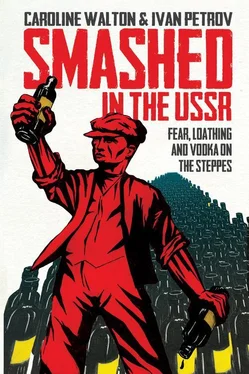

![Геннадий Марченко - Перезагрузка или Back in the Ussr. Книга 1. [СИ]](/books/53319/gennadij-marchenko-perezagruzka-ili-back-in-the-uss-thumb.webp)
